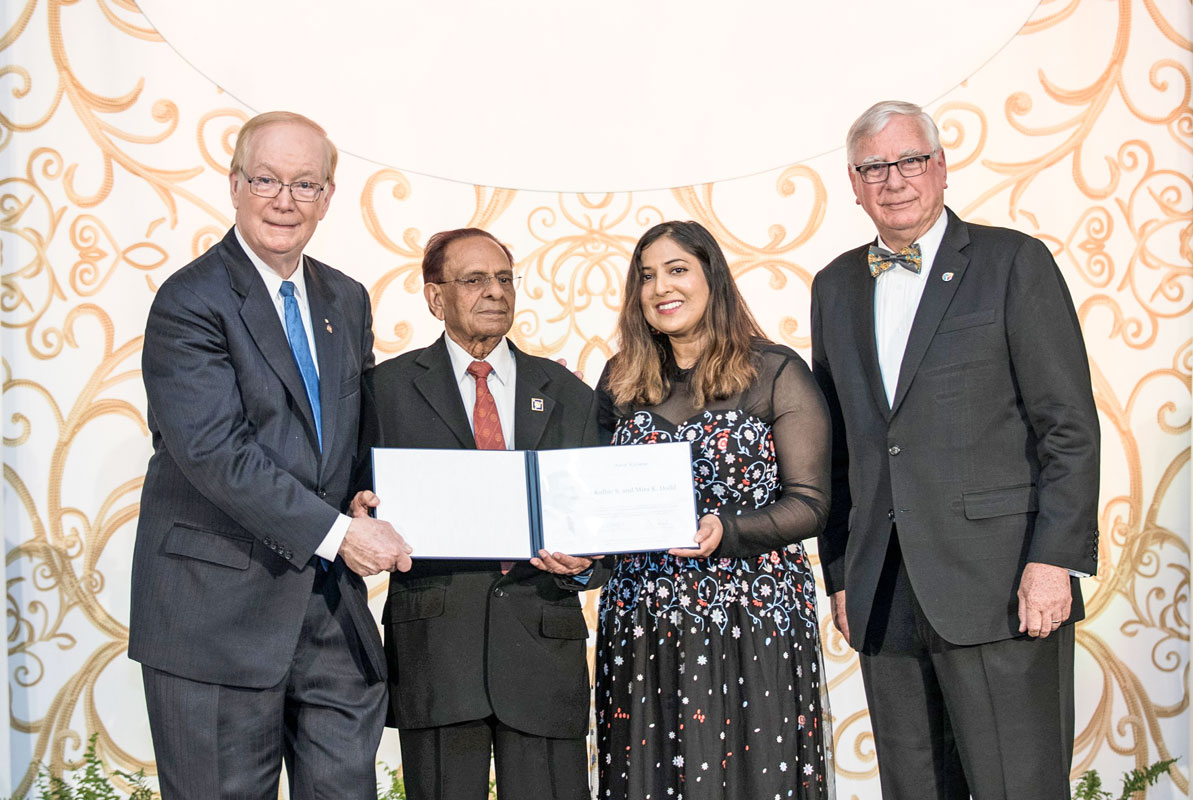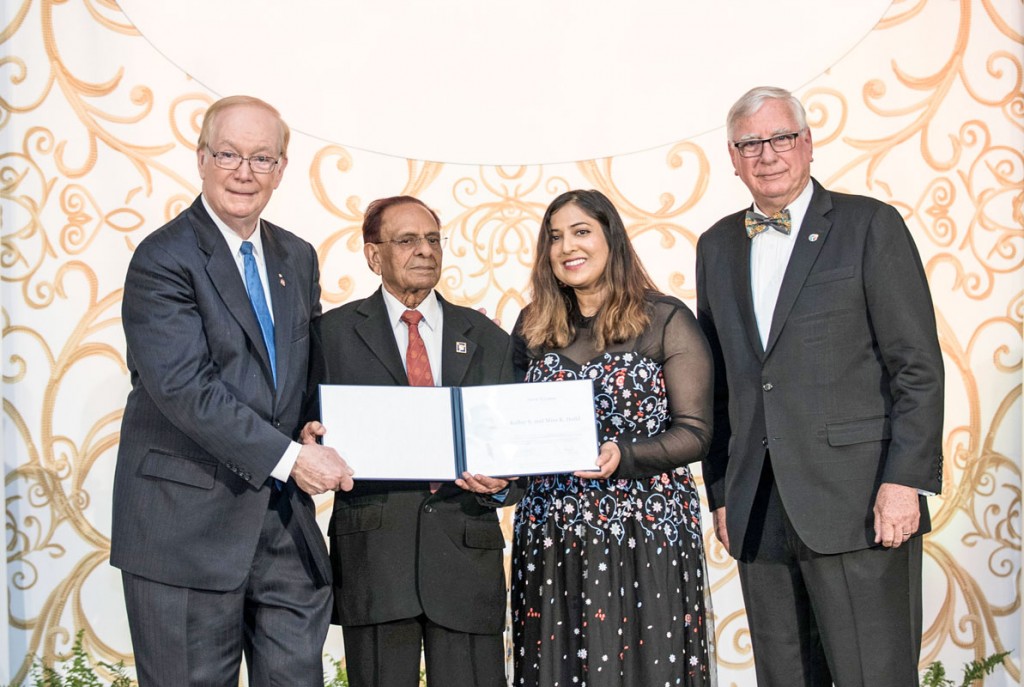An industrial engineer, Kulbir Dodd was a consultant in top US companies including the Whitehead Institute at MIT, Boston, for over 20 years. He was at the peak of academic and professional excellence, but his passion to improve basic literacy levels in India took over, and he returned to Pune in 1992, became a member of RC Poona North, RID 3131, the next year and founded the MKD Multimedia Knowledge Delivery Trust in 2014 to further the cause of literacy in India. Today he is 94 years old.

Ever since, MKD — Mira Kulbir Dodd — has become a popular acronym in Pune, Satara and Ahmednagar districts of Maharashtra as thousands of rural students made good use of the MKD tablets distributed by his club, RC Poona North, RID 3131, in partnership with his charitable trust. “So far Dodd has given $528,000 to TRF and was inducted into the Chair’s Circle (double AKS) in 2021 after his last instalment of $100,000. Since 2013, over 3,000 MKD e-learning tablets have been distributed to around 200 government primary schools in rural areas reaching out to over 10,000 students each year,” said Kumar Shinagare, a confidante of Dodd, who is a Rotarian and a trustee at the MKD Trust. The e-learning devices given to schools with pre-loaded software (in both Marathi and English) for various subjects for Classes 1–7, are being used by 3–4 students at a time under the supervision of teachers. “We update the tablet software whenever the state government brings certain changes in the school syllabus.”
Dodd has given five Term Gifts, each $30,000 to TRF, of which four were converted into global grants for the MKD tablet project and the fifth GG is under process. “The impact assessment survey done by the Metric Global, an independent firm, has shown excellent results in the learning outcomes in rural students and increasing literacy levels in all schools,” says Shinagare. Comprehension of subjects, pass percentage, class attendance and reduction in dropout rates have all improved with the introduction of tablets in schools. “We have also loaded adult literacy software developed by TCS in the devices so that schools can teach illiterate parents how to read, write and do basic arithmetic after class hours. Parents are very happy to learn from their children who also take lessons for them with the MKD tablets.”
Endowment Fund
Dodd has donated $300,000 to TRF to set up an Endowment Fund named MKD Tablet Performance Award. Around 50 per cent of its annual return (as interest, dividend, capital gains from the invested money) is being received as DDF by RID 3131 which passes it on to RC Poona North with the condition that it must be used only for literacy projects. “We use the DDF amount to fund GG projects, procure the tablets and train students and teachers to make effective use of e-learning gadgets.”

Following the “remarkable change” ushered in by the tablets, clubs from Kerala, Delhi and Kolkata want to replicate this e-learning project for government schools in their regions. “After learning about the MKD’s success story, the Maharashtra government studied our project, bought the same software and has distributed 60,000 tablets to tribal schools.”
RILM chairman PRID Kamal Sanghvi came to Pune in 2019–20, met Dodd, Shinagare and the then DRFC Deepak Shikarpur. He was “much impressed by our tablet project. He is now planning to distribute over one lakh MKD tablets to rural students to begin with,” said Shinagare. RILM wants to roll out this tablet distribution across India in the coming years, he said.
An illustrious career
The ‘M’ in MKD stands for Dodd’s wife Dr Mira, a gynaecologist, whom he met during his stint at TELCO, now Tata Motors, in Jamshedpur, before he left for the US. Mira, two years elder to him, passed away last year. The couple has no children. Dodd, a nonagenarian, is being helped by office assistants who read all his mails, attend phone calls and schedule his official meetings.
Born in Lahore in December 1927, Dodd studied at the Punjab College of Engineering and Technology, Lahore, and after the Partition, worked with TELCO at its plants in Jamshedpur and Pune (1950–62). Then he was chief engineer at the Heavy Engineering Corporation, Ranchi, set up with Russian collaboration, for installing steel plants. Here, he worked for five years till 1967, before migrating to the US. He got a masters in Industrial Engineering from the University of Tuledo, Ohio.
He started a charitable trust in 1990 called Multimedia International Research Associates in the US with the aim to “Teach Through Technology Today”. This NGO has done “some commendable work in America which struggled with literacy goals at that time,” said Shinagare.






